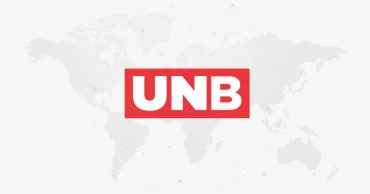industrial loans
Bangladesh Bank introduces “Exit Policy” for expediting default loan recovery
Bangladesh Bank has formulated a new "Exit Policy" aimed at expediting the recovery of defaulted loans. This policy allows both defaulters and non-defaulting business customers to settle their industrial loans by paying off the balance, with specific conditions attached.
According to the central bank's new notification, applicants must deposit at least 10 percent of the loan amount upfront to qualify for this facility. Banks have been instructed to develop their own policies in line with the central bank's guidelines, incorporating similar conditions.
Under the policy, there will be no change in the quality of the loan until it is fully repaid, and customers utilizing the exit facility will not be eligible for new loans during this period.
Read more: 'Publish list of loan defaulters in parliament': AK Azad
"If a businessperson takes this facility, they must repay the entire loan within a maximum of three years. These customers will not be identified as willful defaulters," the notification stated.
The central bank noted that borrowers' businesses or projects might incur losses due to uncontrollable factors, leading to hindered debt collection activities and insufficient cash flow for loan repayment. Consequently, such loans are classified as defaults but not as willful defaults.
The notification also emphasized that genuine adverse financial conditions can reduce the chances of debt recovery. Therefore, there is a need for a uniform policy to facilitate debt recovery or adjustment through the exit mechanism, as banks have been following varied procedures.
In this context, the new policy aims to maintain liquidity flow and reduce defaulted loans in the banking sector. Regular loan exit facilities may be granted for recovering adversely classified loans with poor recovery prospects or in cases where projects or businesses have closed due to uncontrollable reasons.
Read more: Process on to prepare list of loan defaulters, finance minister tells Parliament
To apply for the facility, borrowers must pay a minimum of 10 percent of the existing loan balance in one-time cash. Banks are required to settle these applications within 60 working days of receipt.
1 year ago
Bangladesh Bank sets max interest rate of 10.20% on industrial loans for 6 months
The interest rate on loans from banks in October has been set at 10.20 percent as per Bangladesh Bank’s formula.
The method, based on which the interest rate is now being determined, is known as “SMART” or “Six Months Moving Average Rate of Treasury Bills.” Bangladesh Bank informs of this rate at the beginning of every month.
The new interest rate determining method was introduced on July 1, 2023. Earlier, from April 2020, the maximum interest rate on bank loans was 9 percent.
With D grade Bangladesh Bank governor fares poorly in global ranking
Accordingly, in the current month of October, banks can take a maximum of 10.20 percent interest on large-scale industrial loans.
On the other hand, non-banking financial institutions (NBFIs) can charge interest against loans by adding a margin at a maximum rate of 5 percent. Their maximum interest rate will be 12.20 percent and 9.20 percent on deposits. However, the loan interest rate set in October cannot be changed within the next six months.
This will make the highest interest rate on agricultural loans in September 9.14 percent. An additional 1 percent supervision charge can be levied on CMSME, personal, and car purchase loans.
Bangladesh Bank introduces dollar booking policy for max 1 year
Bangladesh Bank publishes the 6-month average interest rate of 182-day treasury bills from January this year. Last January, the smart rate was 6.96 percent. After that, it gradually increased every month and reached 7.13 percent last May. But in June and July, it decreased slightly to 7.10 percent.
However, it increased to 7.14 percent in August and reached 7.20 percent in September.
On the advice of the International Monetary Fund (IMF), Bangladesh Bank introduced a market-based interest rate system.
Despite Bangladesh Bank Governor’s decision to not raise exchange rate before election, dollar rate hiked again
The interest rate cap of 9 percent was imposed from April 2020 to facilitate traders.
A research report by the central bank also recommends withdrawing or increasing the interest rate limit. But Bangladesh Bank was silent as the government did not give positive consent. One of the conditions of IMF’s USD $4.7 billion loan is to make the interest rate market-based. In light of that condition, the new interest rate system was introduced.
2 years ago



